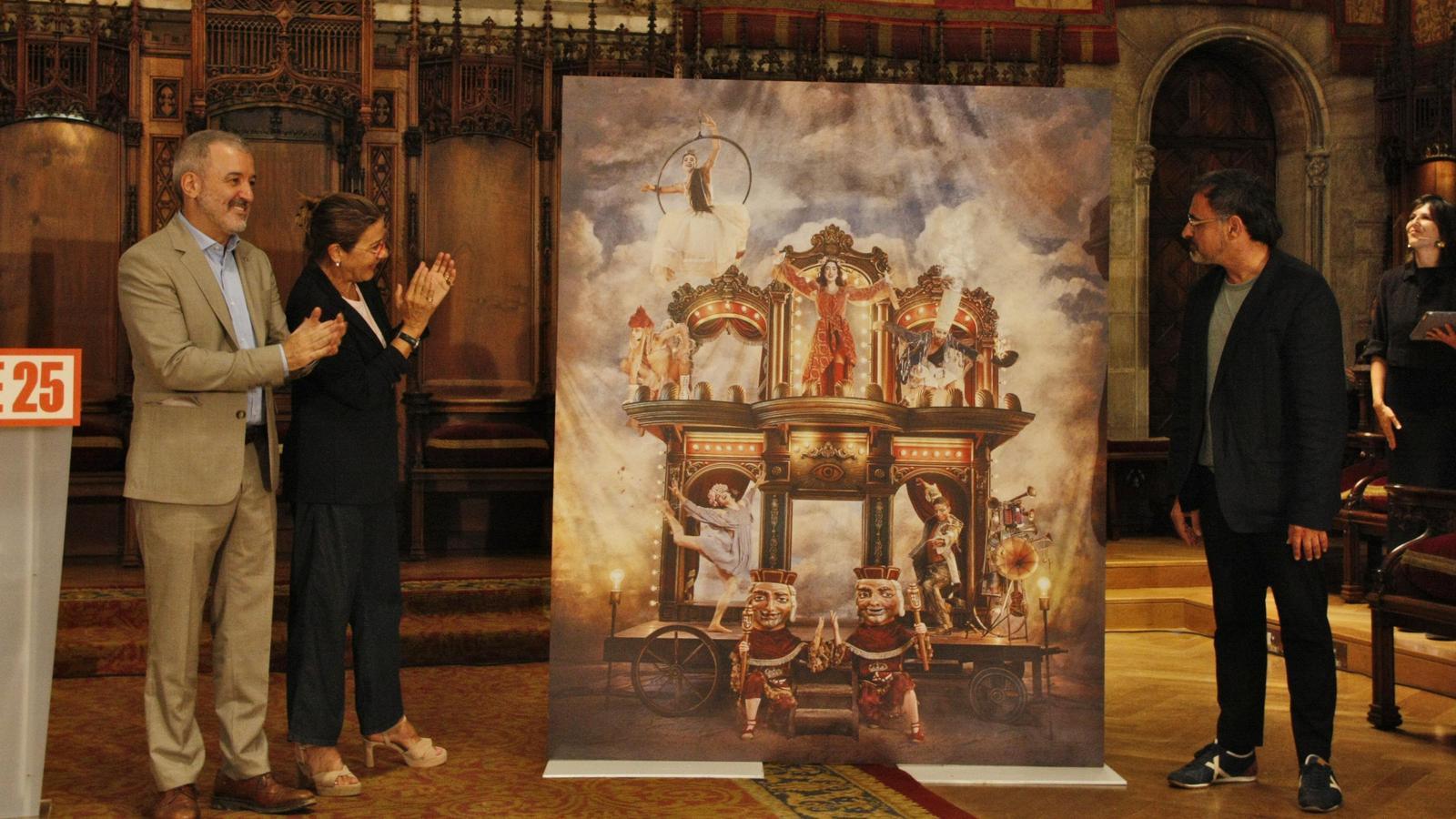Christian Lawyers sue Collboni for the Mercè poster: "It humiliates Catholics."
The ultra-Catholic group sees a crime of mockery in the image chosen to announce the festivities.

BarcelonaThe ultra-Catholic group Advocats Cristians (Christian Lawyers) has taken the poster for this year's La Mercè Festival in Barcelona to court. Specifically, the organization has filed a complaint against the mayor, Jaume Collboni, whom it considers "ultimately responsible" for the poster. As for the author of the work, the set designer and film director Lluís Danés, they are asking him to be a witness in the legal proceedings they intend to open.
The complaint is for an alleged crime of mockery, and given that during August the courts only hear urgent cases, it is likely that it will not receive a response until September, according to judicial sources. The crime that the ultra-Catholic group attributes to Collboni penalizes those who "mock religious dogmas, beliefs, rituals, or ceremonies" with a fine.
Danés presented the work, explaining that it represents a cart, which he built "with wood, metal, and magic" specifically for the occasion. "A piece of scenography that takes to the streets to bring the celebration to the heart of the city," the author described. However, the complaint by Christian Lawyers considers that the poster for the 2025 Mercè Festival is inspired by a baroque altarpiece and "mixes the circus imagery typical of a freak show with religious iconography." They place special emphasis on the image of a female figure, which they attribute to the Virgin of Mercy, and which in the video accompanying the festival poster lifts her skirt while dancing. For the group, the poster "humiliates Catholics and encourages social confrontation." To announce the city's festivals had already raised criticism from the archbishopric of Barcelona, which it considers "ridiculing the image of the Virgin Mary." In fact, the complaint by Christian Lawyers refers to the archbishopric's criticisms and also to those made by the PP and Vox in the same vein.
The City Council denies any religious reference.
However, at the presentation of the poster, it was explained that it was an illustration to pay homage to traveling theater and that it was intended to capture the essence "of a Mercè who is closely linked to the world of acting and performance." As Danés himself explained, the goal was to represent "the creative and diverse perspective of La Mercè."
Even when the archbishopric expressed the first criticisms, sources from the City Council defended the creative freedom of the author and clarified that "in no case was he inspired by any religious motif or figure to design the poster." In response to the complaint from the ultra-Catholic group, the council reiterated its support for the author and clarified again that there are no religious references in the work.
Danés has explained his creation as "a tribute to the traveling theatergoers and Mediterranean popular culture, but also to a Barcelona with a long theatrical tradition, especially in Paral·lel," a legacy that he says has served as inspiration for his "open, direct, popular, and generous spirit." Regarding the La Mercè poster, the author also clarified that he does not want to convey any closed or exclusive message. "His intention is clear: to open, to add, to excite, to invite. There is no dogma or ambiguous symbols. Only the desire to celebrate culture as a space of freedom and coexistence," he argued.
